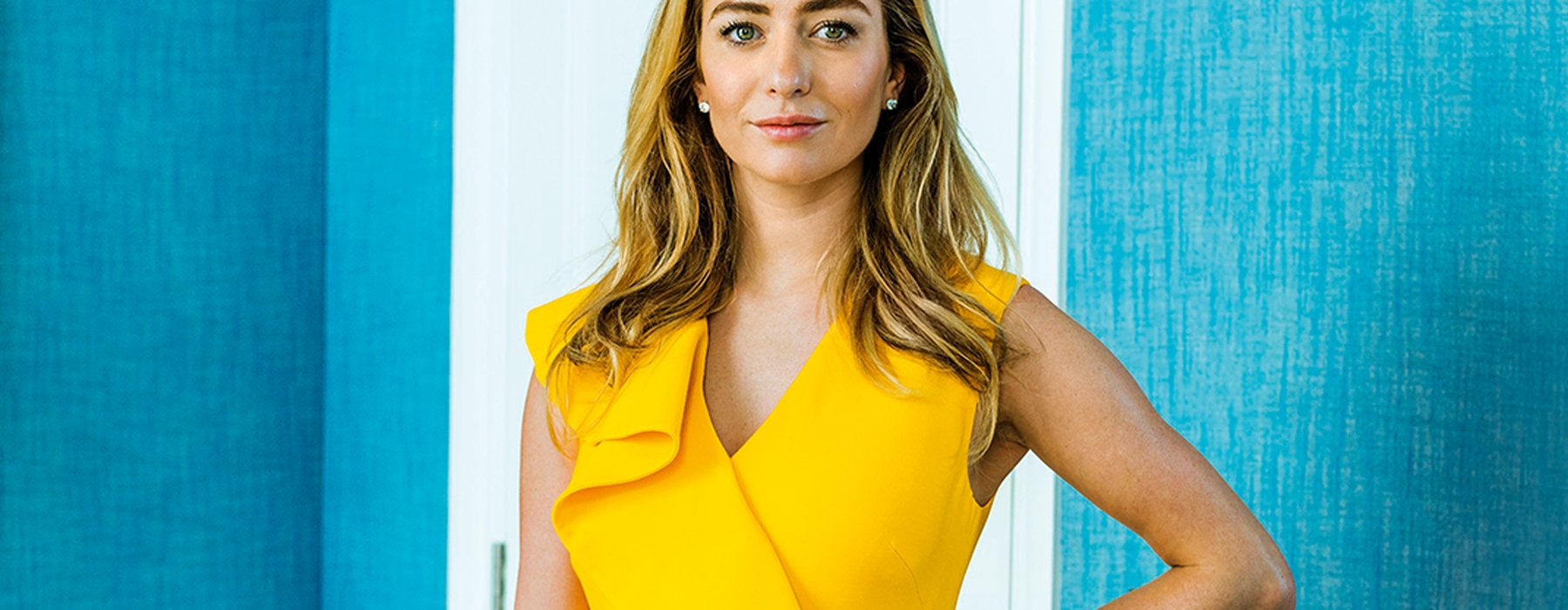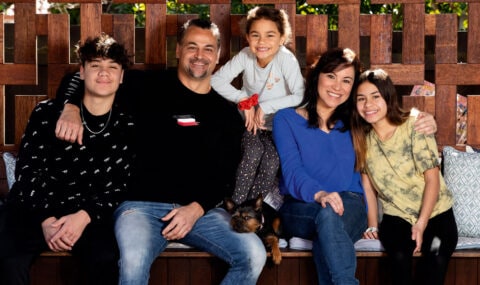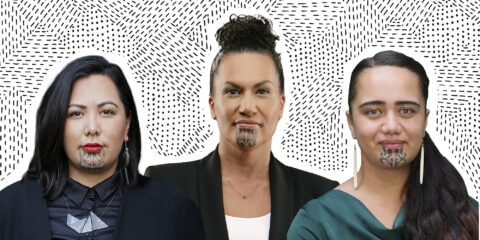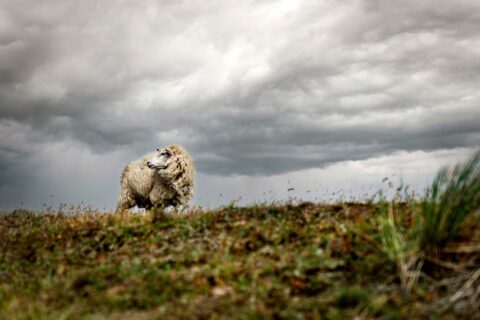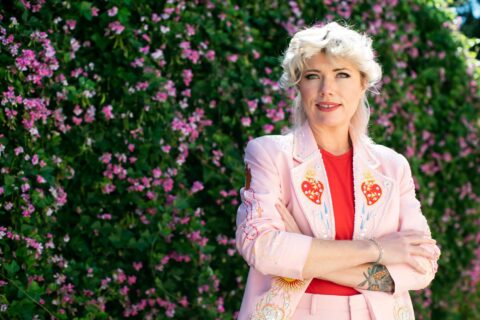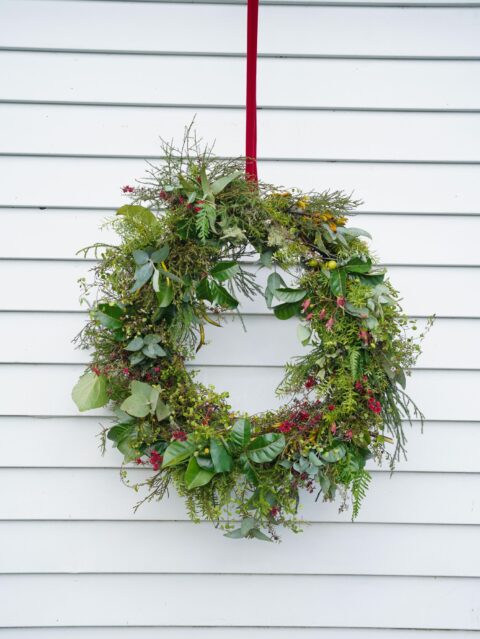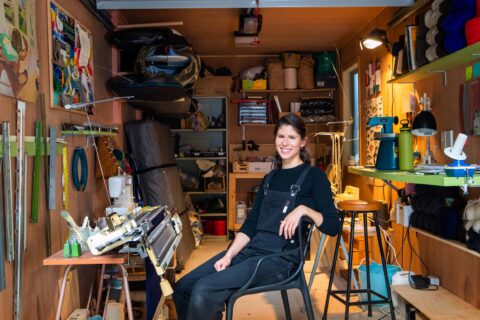Whitney Wolfe Herd co-founded Bumble in her twenties, then became the target of misogynistic trolling. Now her female-friendly dating app has made her one of the world’s wealthiest women at 31.
When I first met Whitney Wolfe Herd four years ago, Bumble HQ was a humble two-bedroom apartment in Austin, Texas. A fresh-faced team of just 10 – with a further 20 in London, New York and Los Angeles – plus Whitney’s elderly golden labrador, Jack, were crammed into the tiny space, and the entire second bedroom was a store cupboard of bright yellow Bumble-branded merch.
Whitney, then 27 and undeniably impressive – polished, passionate, articulate, driven – had founded the dating app that forces women to make the first move just two-and-a-half years earlier.
She had recently made the prestigious Forbes 30 Under 30 list, alongside actress Margot Robbie, bestselling author Emma Cline and Olympic gymnast Simone Biles. In the four years since, she’s been busy. She got married to 33-year-old Texan oil heir Michael Herd in a lavish three-day event at a castle on the Amalfi Coast, and the couple welcomed son Bobby in December 2019.
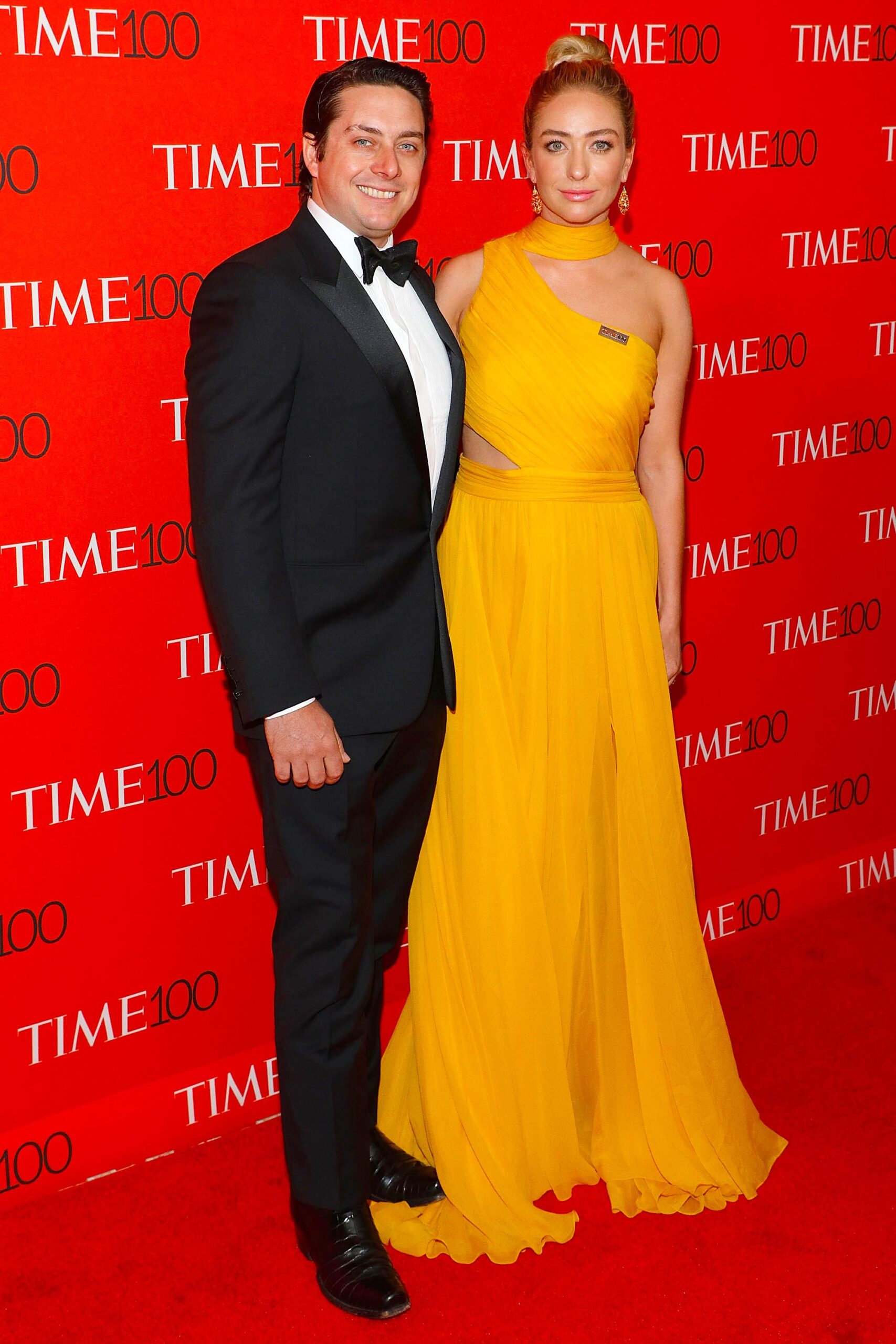
Bumble’s employees now number more than 700 across offices in Austin, Barcelona, London and Moscow, with 42 million active users in 150 countries. And in February, four hours after Bumble was floated on the New York Stock Exchange, 31-year-old Whitney became not only the youngest female CEO to take a company public, but also the youngest self-made female billionaire, with an estimated net worth of $3.1 billion.
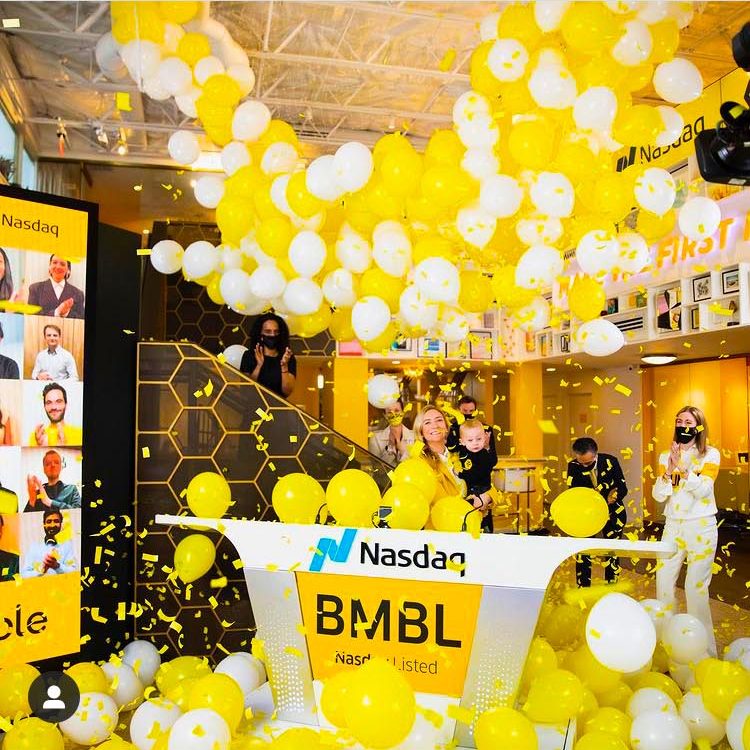
PHOTO VIA INSTAGRAM
I’m not quite sure what I’ve been doing with my past four years, but I now feel like a bit of a slouch. When Whitney logs on to Zoom from Austin – on-brand in a pink, blue and black Bumble jumper – she has apparently not aged a day either. The only slight difference is her diffidence in disclosing her whereabouts. I’ve visited her former home, a mansion in enormous grounds beside Austin’s Colorado River, but the family no longer live there, she tells me cautiously.
I imagine they’ve upgraded to somewhere even grander, given their combined worth these days. Since she’s using a yellow Bumble-branded background, however, I have no clues – save some loud birdsong and occasional shouts from her toddler son. I don’t blame Whitney for guarding her privacy: she’s a billionaire with a baby and a disturbing history of being targeted by trolls.
She is, in fact, one of only 100 self-made female billionaires in the world, with self-made women still accounting for just 5% of the world’s 500 richest people. Part of the problem is a lack of investment in female-founded companies. “It’s hard for women to get capital, because we are held to impossibly high standards,” says Whitney. “Men are applauded for being big, wild thinkers, while women are given very strict guidelines not to be too out there, to be measured and reserved. It’s hard for us even to be convicted in ourselves for fear of being labelled as self-obsessed or arrogant. I know,” she says, “because I have lived this.”
Even Whitney’s success is disparaged by some, and her achievements belittled because of her partnership with Badoo, the social network behemoth owned by Russian businessman Andrey Andreev, who invested heavily in Bumble during its start-up phase. “Badoo also made investments in a lot of other businesses that you’ve never heard of and which don’t exist anymore,” counters Whitney. “We were given very modest resources and it was not $100 million, as some people reported. The notion that I just had everything handed to me, that’s not the truth.”
I’ve hit a nerve, and understandably so. That it’s easier for some to believe Whitney – who has been dubbed, somewhat patronisingly, “the Elle Woods of the tech world”, a reference to Legally Blonde – is simply the front-of-house furnishings and not the true founder of a billion-dollar firm is evidence of exactly the misogyny she built her app to fight.
For anyone who hasn’t been on the front lines of dating for a decade, Bumble works in a similar way to Tinder or Hinge – based on location and proximity, users swipe right for yes, left for no – but, crucially, women call the shots. Men cannot initiate a conversation (even if they swipe “yes”) and the female party has 24 hours to strike up a chat before the “match” expires. (In same-sex matches, both parties can initiate.) Although basic membership is free, users can upgrade to a premium plan for a monthly fee and gain access to features like backtracking to undo left swipes and boosting your profile to be viewed by more people.
“It’s not biological imperative that says men have to ask us out, it’s social conditioning. And the internet has been engineered to reflect gender norms in relationships. But we can change it,” says Whitney.
“I cannot count how many times I’ve heard women say, ‘I would have never made the first move, but now I approach in real life too and make the first move,’” she beams. “And they tell me, ‘It’s because Bumble has normalised that for me’. Bumble has normalised making that first move, whether in person – seeing someone that you think is attractive or interesting – or elsewhere, like sending someone your CV.
“Do I think we’re solving the world’s problems? No. Do I think that, by making small tweaks through product and technology, we have the potential to shift behaviour in a more positive direction? Yes. And do I think there are long-term positive implications from that? I do believe that is true, yes.”
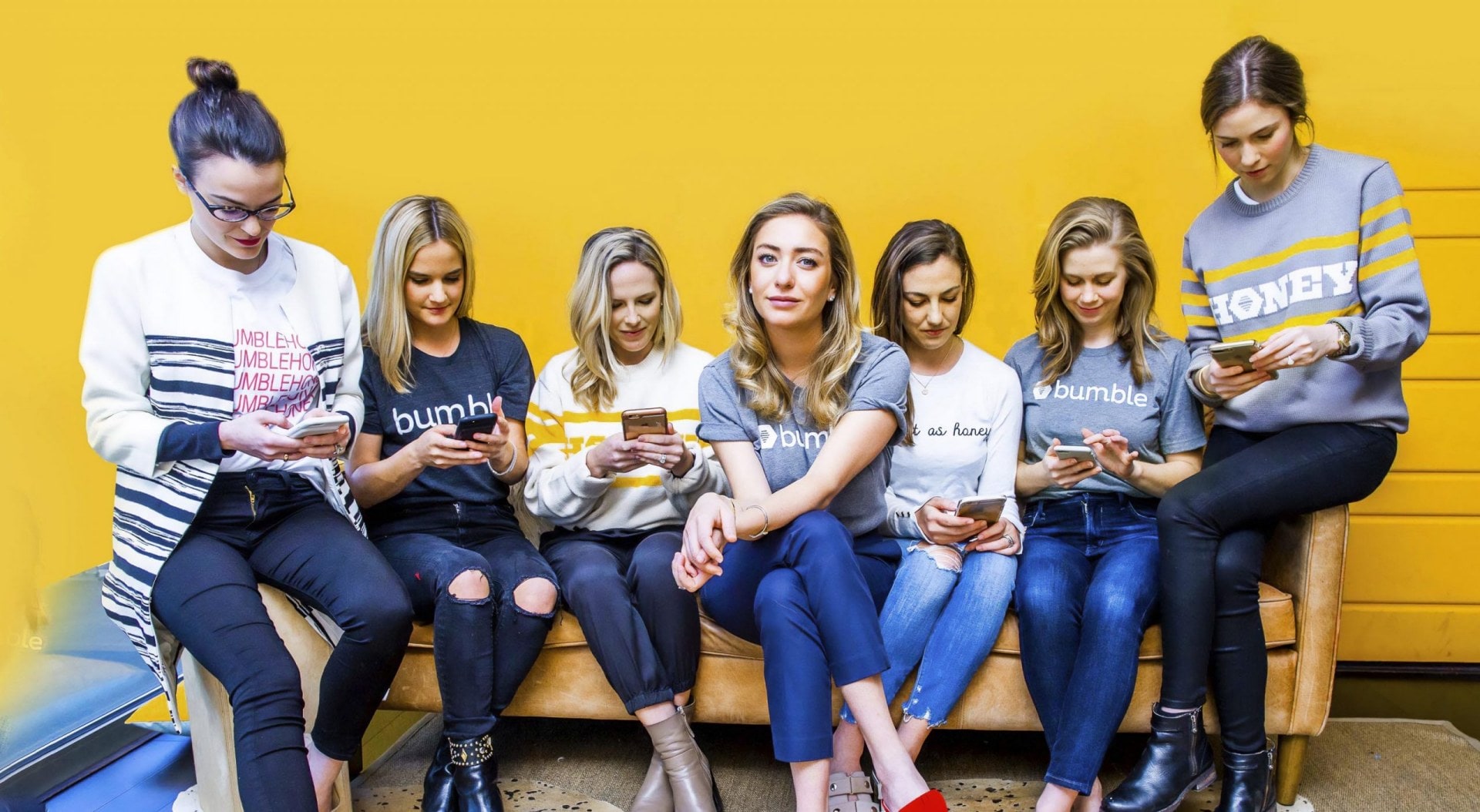
For the first time, really, since the second wave, feminism is big business. The current moment – of post-#MeToo empowerment and the first female US vice-president – has been commodified and sold back to consumers who, more than ever, align their identity with brands. And Whitney is, without a doubt, a marketing and branding genius. Bumble’s colourful billboards and ads feature slick quips – “Be the CEO your parents always wanted you to marry” – but Whitney also walks the walk. In 2019, Bumble lobbied the Texas legislature to pass a bill that fined anyone who sent obscene images without consent US$500, and unsolicited “dick pics” are now illegal in Texas. Next, she wants laws against online harassment, verbal abuse and the digital equivalent of catcalling.
“Female entrepreneurs typically build things to solve problems,” she says, while men, she believes, are far more likely to come up with ideas simply aimed at being successful. And, for Whitney, solving the problem of “online toxicity and abuse” has always been personal.
One of the founding team at Tinder – the original “swipe right” dating app – Whitney was its first vice-president of marketing at 23. She also dated a fellow founder, Justin Mateen, who, she has claimed, sent her abusive texts and called her a “whore” and a “gold digger” after she ended things. Another senior member of the team apparently said that having a female co-founder made the company “seem like a joke”. Whitney sued Tinder for sexual harassment – the company denied any wrongdoing itself – and she won an undisclosed sum, rumoured to be over $1 million.
The media reporting of the case was extensive and, in the summer of 2015, Whitney was viciously trolled for it. “Emails, texts, tweets, people showing up at my house – really weird and horrible stuff,” she recalls. Including rape and murder threats from strangers. “I was 24 years old and I had been given this scarlet letter. I decided to take back control over my life and my narrative, and to try to do something that would help solve the problem I was living through.”
I decided to take back control over my life and my narrative, and to try to do something that would help solve the problem I was living through
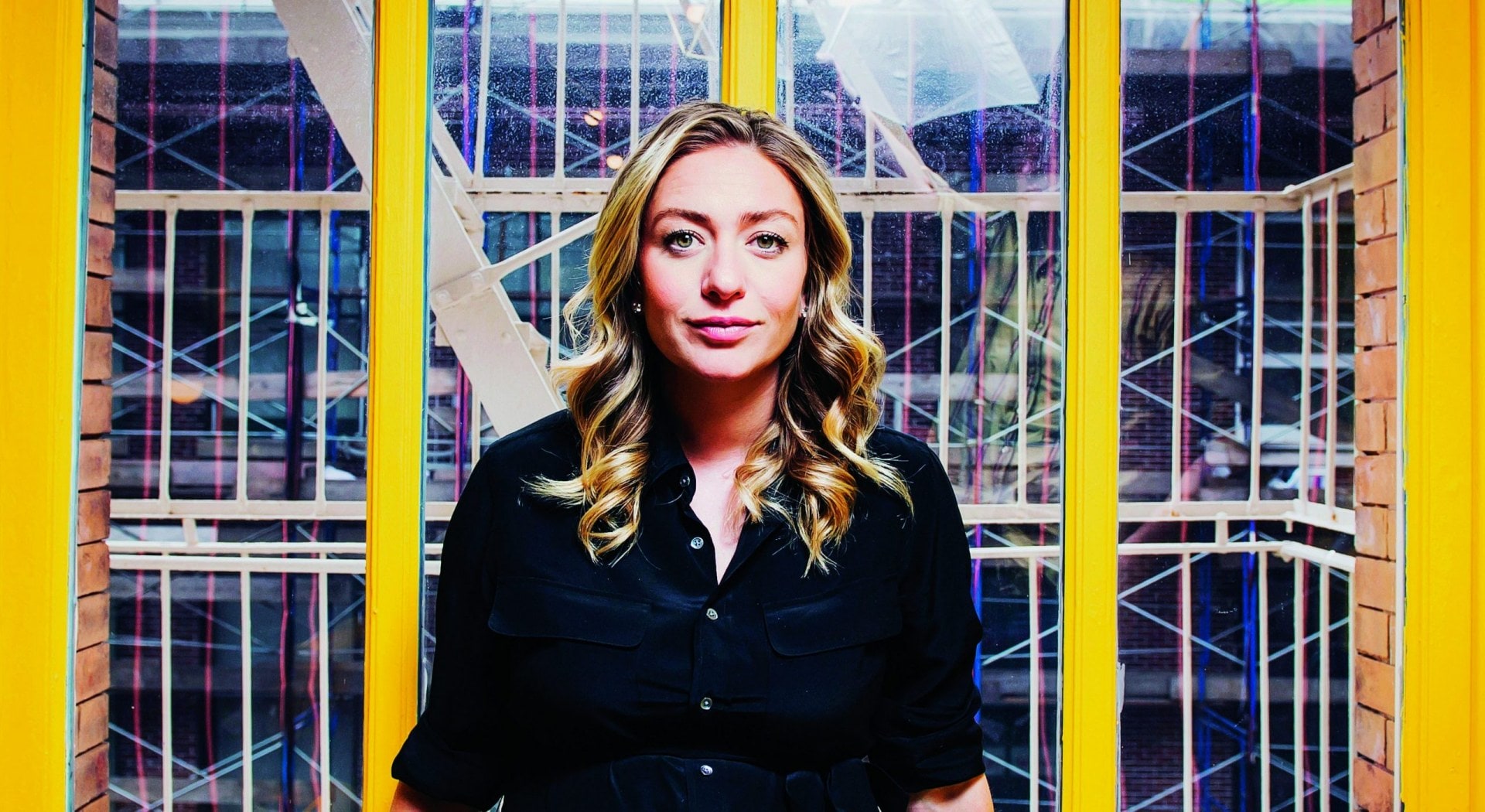
There’s another element to the story, though – one that Whitney rarely talks about publicly. She once dated someone in what a family friend has called “one of the most horrific relationships I’ve ever seen”. The man, who has never been identified, reportedly referred to Whitney, her sister and mother as “c***s”, threw a watch at her mother’s head at a party, and once threatened her with a gun. “I experienced severe emotional abuse during my really formative years, and it stripped me down to nothing,” she has said. “It showed me a very dark side of relationships, and it helped inform my understanding of what was wrong with gender dynamics.”
The daughter of Michael, a property developer, and Kelly, a housewife, who separated more than a decade ago, Whitney and her younger sister, Danielle, grew up in a small town outside Salt Lake City in Utah. Although her father is Jewish and her mother Catholic, the region is predominantly and fervently Mormon, which, says Whitney, meant an “incredibly patriarchal community and society”.
“I’ll never forget being 17 and saying, ‘Why are the men always in control in relationships? Why is every woman my mum knows spending her days crying about the way her divorce is going, or the way her husband is treating her?’ I recognised that it was a problem, but everyone was accepting it all as, ‘That’s just how things are’. And my inner voice was saying, ‘Just because that’s how things are, doesn’t mean it’s how they have to be.’”
Along with delivery services, gaming and garden centres, dating apps have boomed during the pandemic as sex-starved singles, sequestered in their homes, turned to the only truly safe way of meeting someone. Use of dating apps, including Bumble, Hinge, Tinder and Happn, increased 17%-23% last year, compared with the previous 12 months. Bumble also saw a 42% increase in video calls, with 33% of users saying they will consider still using the video-call function – which was part of Bumble before Covid, and which Whitney calls “a no-brainer, for safety and security” – when dating post-pandemic too.
I’m a very reluctant app dater myself. I find the strange Pavlovian response that the process inspires in me – disappointment when someone I wasn’t even really that interested in doesn’t respond – actively disempowering, so I tend to steer clear. However, I’m single and live alone, so the isolation and tedium of the pandemic set in fast.
I logged on, not so much looking for romance or even sex. I was just bored of not speaking to anyone new. I missed flirting, sure, but I also just missed every day, unexpected social interactions. On Bumble, I found some perfectly nice guys, but conversation soon lost momentum and I never met up with any of them – unlike on Hinge, which served up a string of great dates and one lovely, albeit short-lived, romance (he was far too young for me, but that’s a different piece entirely).
My friend Alison, who uses both Bumble and Tinder extensively, still prefers the latter, and has a theory that the nature of Bumble’s set-up relies on women doing all the work and rewards passivity in men, which, she finds, causes problems later, with men not taking the initiative in arranging dates, texting or calling. And while Bumble is committed to clamping down on abuse, harassment and lewd, threatening behaviour, it’s impossible to eradicate completely. In response to my quippy gambit about his beard, one guy replied, “You’re that perfect mix of sexy and cute that makes me want to pin you against the wall and f*** you. Hard.” I blocked him.
Bumble has also taken numerous steps to make female users feel safer, including banning guns from photos, as well as “unsolicited and derogatory comments… about someone’s appearance, body shape, size or health”. Like the guy who called me “thicc” (a sort-of compliment, meaning curvaceous) and then asked if that comment was too forward. It was. I deleted him.
Whitney has only ever used a dating app once herself. “I went on one Tinder date and it didn’t work out, obviously.” She met Michael in 2014 in Aspen. He reportedly strolled into the luxury Little Nell hotel in cowboy boots and ski gear and sat down next to his future wife by the fire. His opening line was, “I hear you got a dot-com?”
“My husband is a chilled, rodeo-riding cowboy rancher,” she says today with a laugh. “He still has a Yahoo email address, he looks at his phone once a day. We could not be on more different spectrums.
My husband is a chilled, rodeo-riding cowboy rancher. He looks at his phone once a day. We could not be on more different spectrums
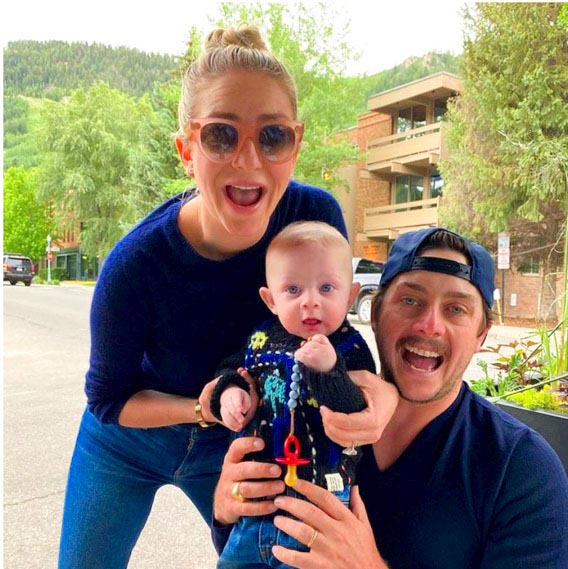
“But if I was a single girl, I would be on Bumble,” she enthuses. “My mum has been on Bumble, my grandma has been on Bumble. I have friends’ parents that have met their new partners on Bumble, and my own friends that have been divorced are now remarried from Bumble.”
She doesn’t pretend Bumble is perfect. Numerous studies over the past five years have found serious inequities in the experiences of users of different ethnicities. A study by OkCupid found that black women consistently receive the fewest matches on dating apps, closely followed by black men, and that women of colour frequently report experiences of fetishisation, being dehumanised and hyper-sexualised on apps and dating sites.
In a new book published this month, The Dating Divide: Race and Desire in the Era of Online Romance, its sociologist authors argue that online dating sites exacerbate racial divisions, particularly those that allow users to filter by race-related “preferences” (Bumble is not one of those).
“One of my biggest shortcomings is that when I started Bumble, I was trying to solve a problem for myself and women I knew,” says Whitney. “And the reality is that most of those women look the same. The problems I was trying to solve for them are very different from the problems that women of colour face. One of my biggest mistakes is not prioritising that sooner.” Bumble now has a diversity team aiming to solve the challenges faced in using the app by any minority or marginalised group, including those with disabilities and sight impairment.
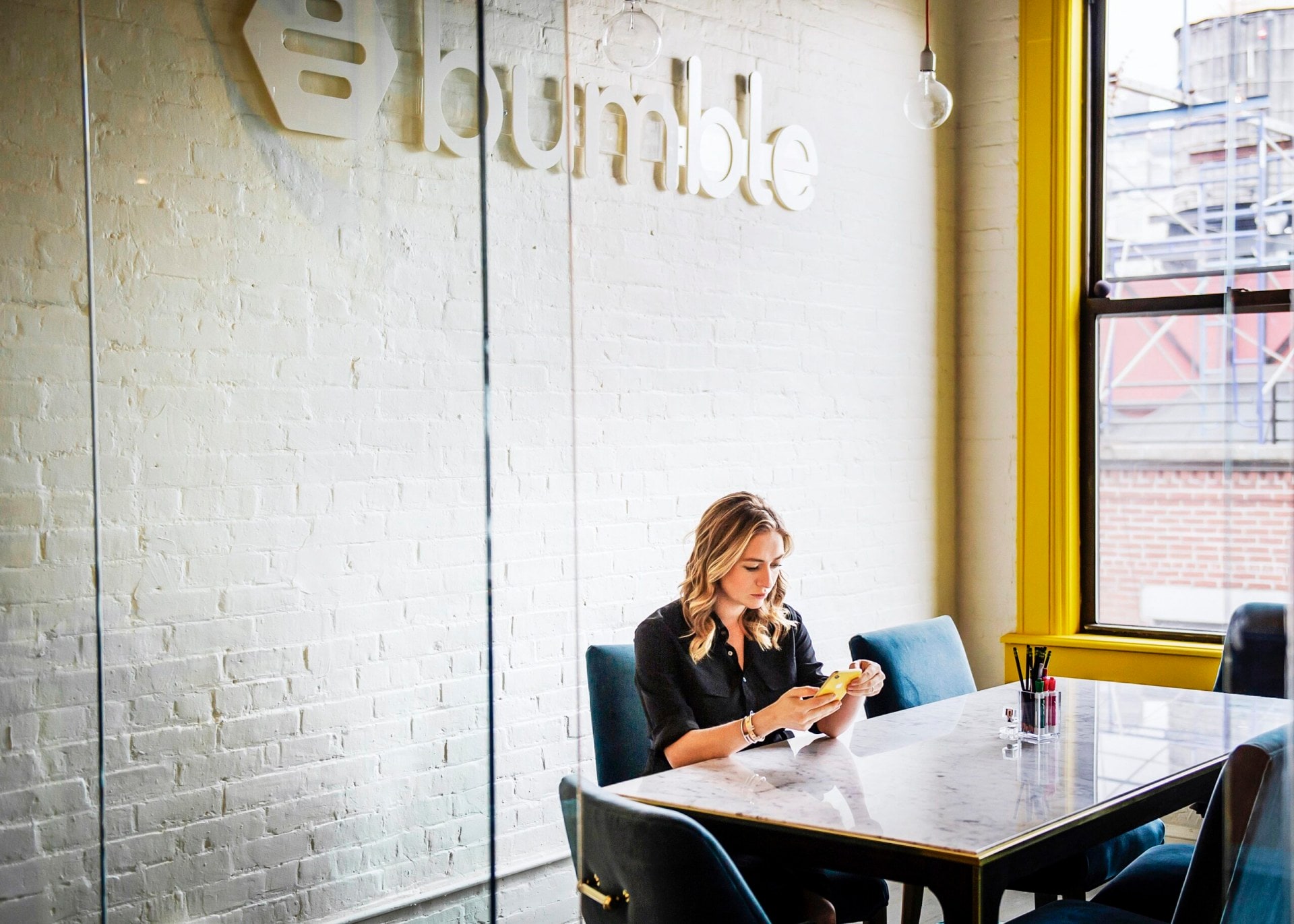
One of the most endearing things about the world’s youngest female self-made billionaire is her willingness to air her own challenges and shortcomings. She came back to work 18 weeks after Bobby was born, “the CEO of 700 people, on lockdown, with very serious postnatal depression and anxiety,” she says. “I felt so lost, scared and confused. It was dark.”
Now she’s a mother, does she still check her emails every two hours through the night, as she famously used to, often getting up at 4.30am to work?
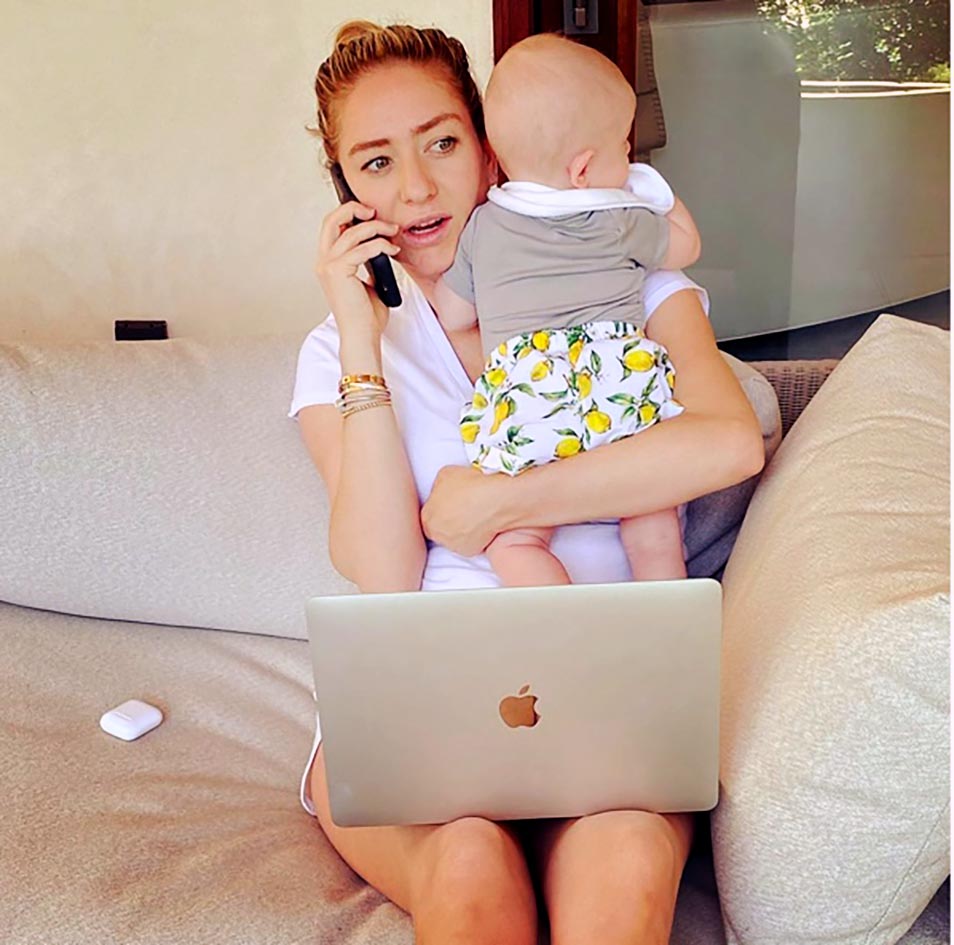
“I had a reckoning,” says Whitney, shaking her head. “That was toxic behaviour, both for me and for others, because me saying that showed young girls, entrepreneurs or team members that’s what they should do too. We probably perpetuated burnout culture,” she admits. “The reality is, I did work around the clock for too many years and it was very unhealthy. I’ve missed a lot of life. There were way too many weeks that went by without talking to loved ones or family members or checking on my grandma, and those are regrets I have.”
Hang on though. She’s a billionaire at 31. Surely that would never be possible without some level of burnout?
“I lost my twenties,” she says. “Since I was 22, I’ve felt like a machine. So OK, I’m on some list, but who cares about a list? What matters is the joy you get out of your life. This rat race is not mandatory. It’s optional. And we need to remind ourselves of that. Because at the end of the day, that’s not how you’re measured.” She’s right, of course, but that’s a lot easier to say when you’re the world’s youngest self-made female billionaire.
And for all her talk of balance, I’m not completely convinced. Unlike other dating apps, Bumble is alone in having diversified – there’s Bumble Bizz for networking and career connections, and Bumble BFF for making new platonic friends.
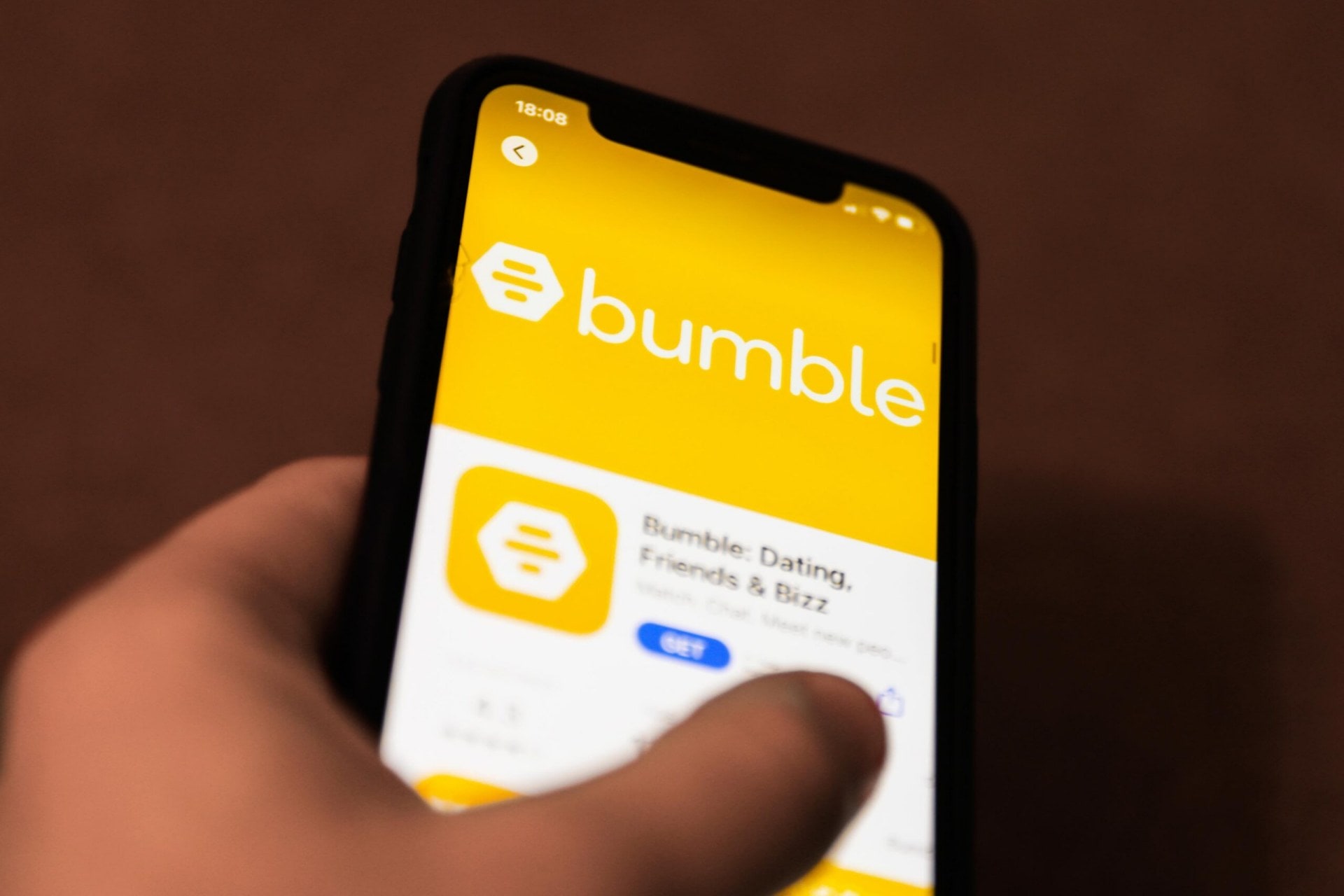
“I always wanted to do something bigger than dating,” Whitney explains. “But I felt, let’s start with dating. Let’s fix dating and then we fix friendships, because when you change the way women feel in their romantic relationships, they no longer feel like they need to be competitive and cruel to each other. So I always saw dating as step one.”
Her plans for Bumble are characteristically ambitious. She suggests it could become a space to find “resources for anything you’re going through, any struggle or any joy – divorce, trauma, menopause, heartbreak – or someone to celebrate with”.
Right now, she says, “the friendship space is exploding.” The fastest-growing social media apps include numerous “friend discovery” apps, such as Itsme, Hoop and Wink.
“And we hope Bumble will be at the forefront of that too. We’re lonely. We are creatures of community and we were not built to be alone. Humans were never intended to self isolate,” she says. “If the pandemic has taught us anything, it’s the importance of our relationships.”
PHOTOS BY DINA LITOVSKY/REDUZ/HEADPRESS, INSTAGRAM

